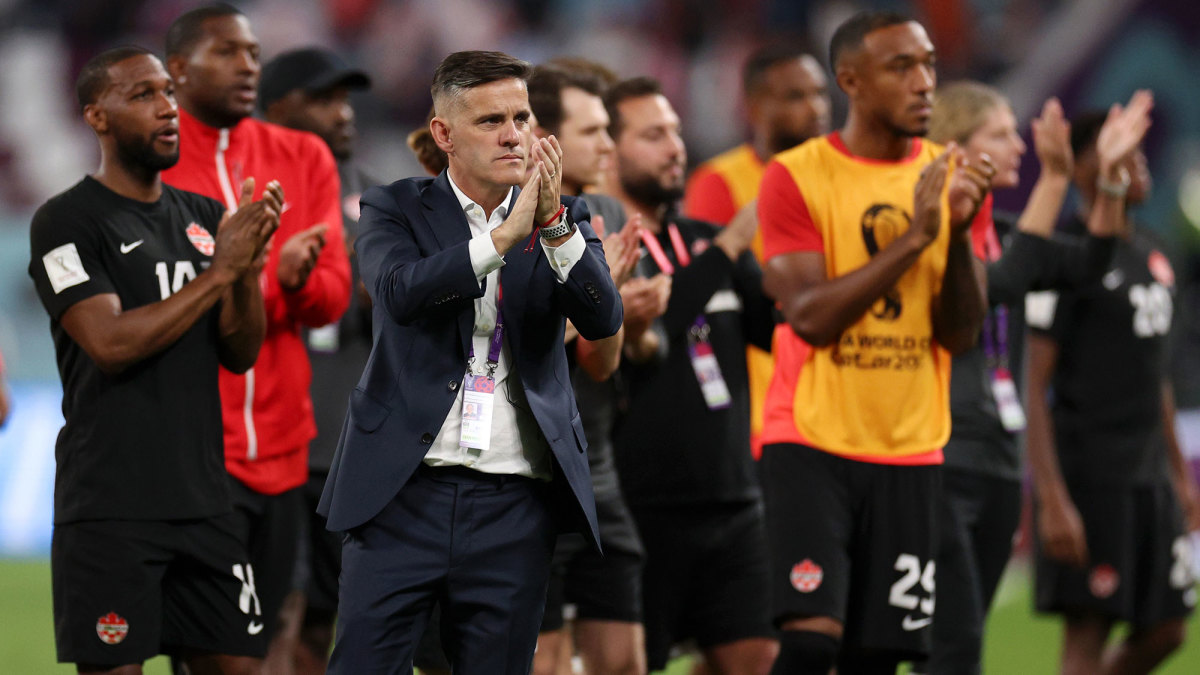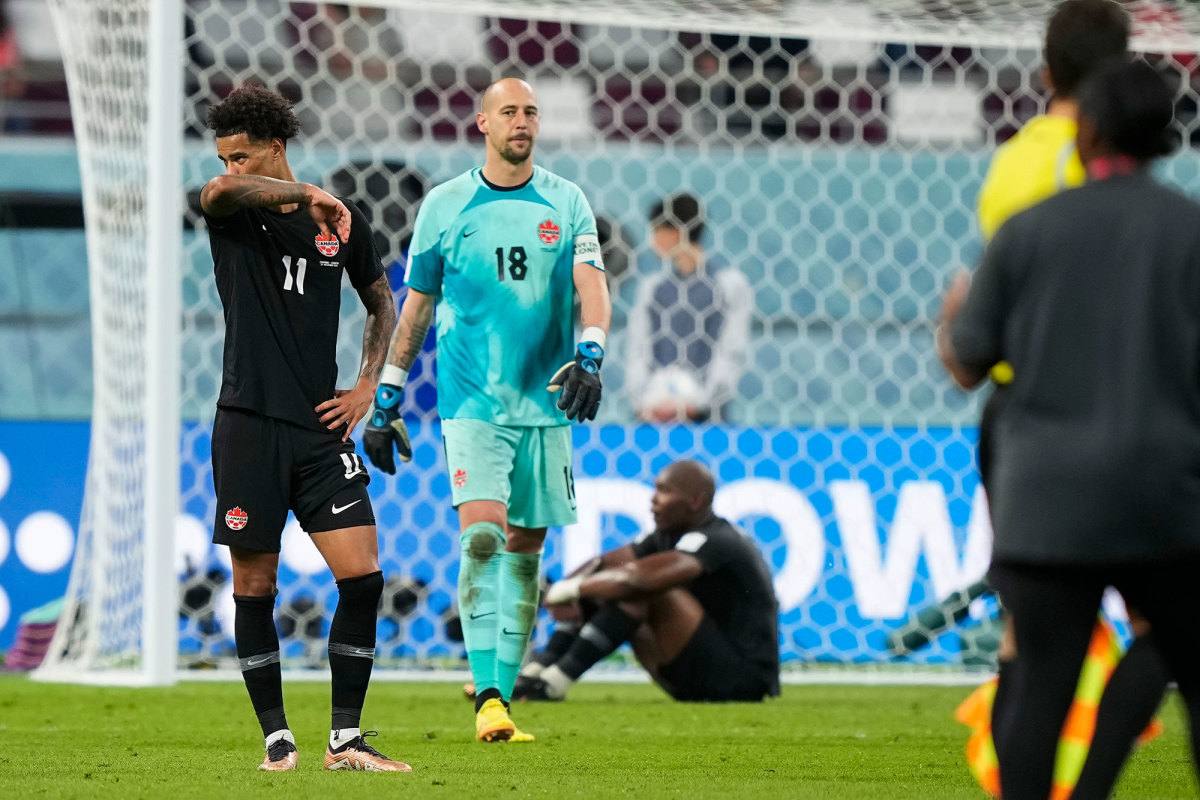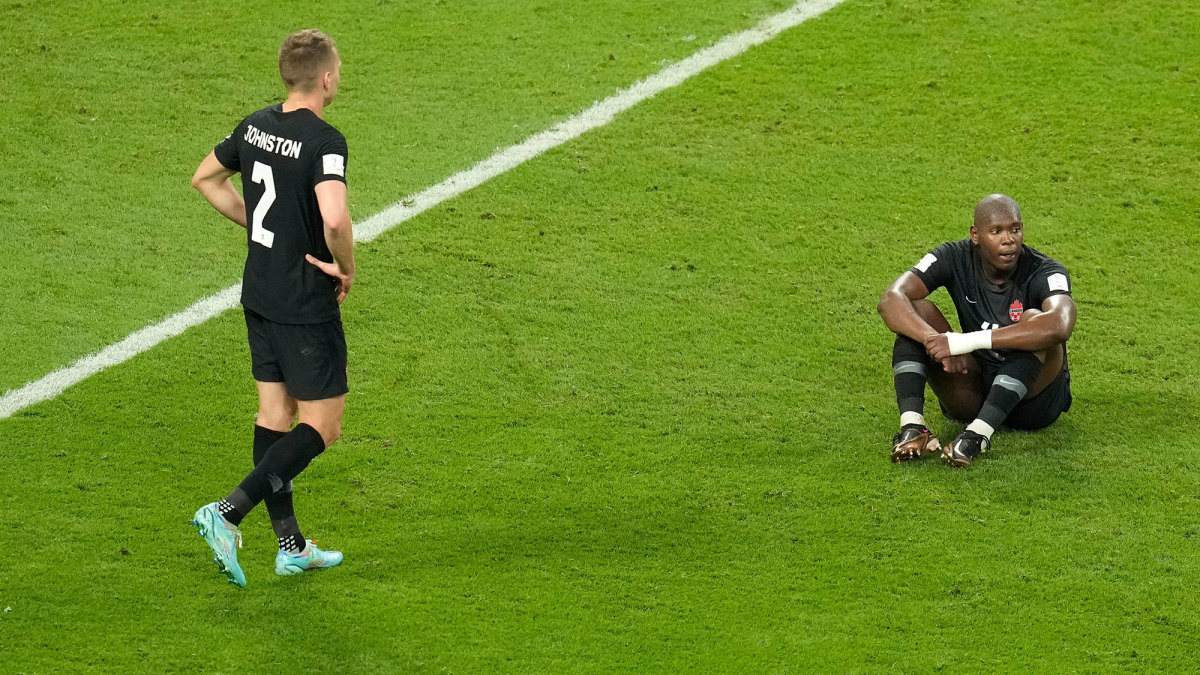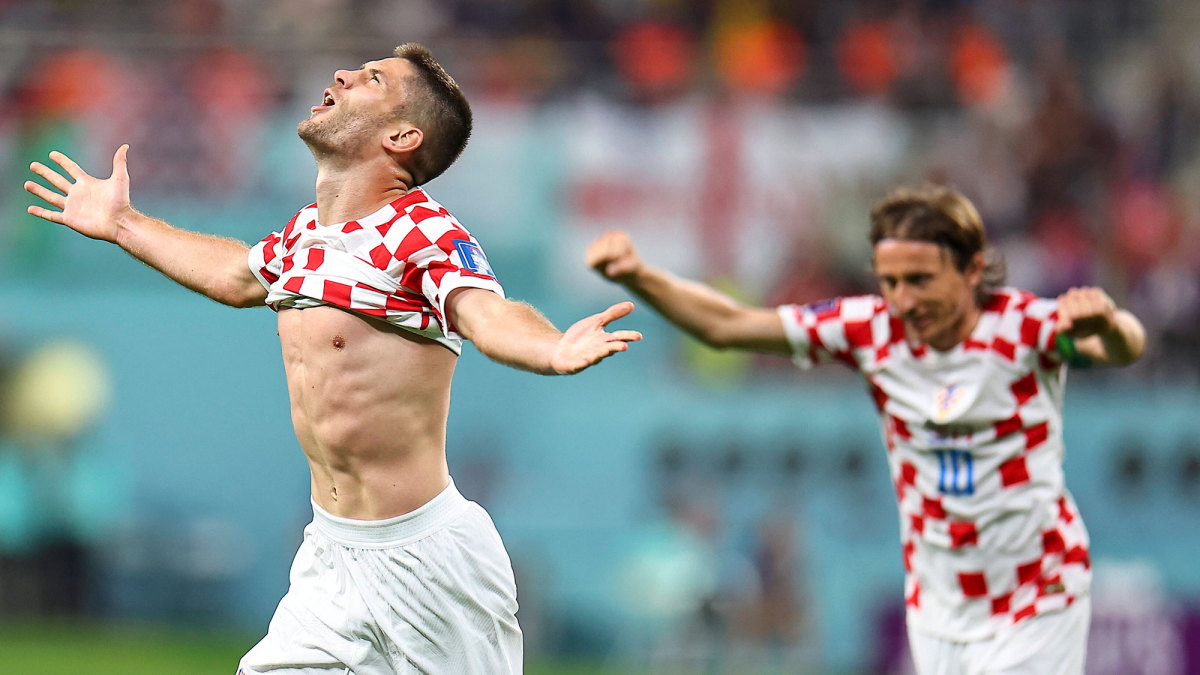Canada Tried to ‘F Croatia’ and Wound Up With an Illuminating L
AL RAYYAN, Qatar — History is remembered with grand, sweeping narratives, but it’s often made in increments—smaller steps that establish a direction toward the future. That seems especially true in soccer, where hierarchies and pecking orders tend to be rock solid and self perpetuating. It can take generations to climb from one tier to the next.
The American men know this all too well. Absent from the World Cup for 40 years, the U.S. arrived at Italia ’90 with a team of college soccer products, lost all three games and yielded eight goals. In the 32 years since—more than a generation—the Americans have become World Cup regulars (eight of nine) but remain far from title contention. That’s a whole different tier.
Canada’s World Cup wait was 36 years. During much of that drought, soccer appeared to be more of a niche amateur pastime than a national commitment or professional endeavor. From the 2002 cycle through 2018, Canada didn’t even manage to advance to the final round of Concacaf’s qualifying competition. When it started down the road to Qatar in March ‘21, Canada was ranked 73rd by FIFA.

Then, almost without warning, Canada was a World Cup team. Work was being done in the background, of course, notably by MLS clubs in Toronto, Montreal and Vancouver. But the national team’s emergence nevertheless appeared sudden. Coach John Herdman’s squad, powered by the likes of Bayern Munich’s Alphonso Davies, 22; Lille’s Jonathan David, 22; and Club Brugge’s Tajon Buchanan, 23, played like gritty, seasoned veterans throughout Concacaf’s Octagonal and finished ahead of Mexico and the U.S. when it concluded in March. Nike was so unprepared for Canada’s run that it didn’t have new World Cup uniforms in production. It’s the only team here in Qatar without custom kit.
It was a historic step. But a second one—winning at the World Cup, forcing the establishment to take notice—naturally proved to be too high a hurdle.
Canada enjoyed its first transformative moment against Croatia on Sunday evening here at the Khalifa International Stadium as Davies became the country’s first man to score a World Cup goal after just 68 seconds.
“We got to celebrate something we’ve been waiting a long time for,” Herdman said.
But Croatia, a World Cup silver medalist four years ago, quickly re-established soccer’s hierarchy. The midfield of Real Madrid superstar and 2018 World Cup golden ball winner Luka Modrić, Mateo Kovačić (Chelsea) and Marcelo Brozović (Inter Milan) wrested control of possession and the match and proceeded to cut through the Canadians with smart passing and off-the-ball runs. Davies’s header was canceled out by Andrej Kramarić in the 36th minute. The Vatreni then took the lead seconds before halftime thanks to a well-placed shot from Marko Livaja.
The Croatians were unruffled by Canada’s start and were consistently clinical thereafter. It was almost like they’d been here before. Two more goals in Sunday’s second half—including a second from Kramarić—provided the final 4–1 margin and confirmed Canada’s World Cup elimination after just two matches (it lost the opener, 1–0, to Belgium). Canada became the second team here in Qatar, after the host, to be knocked out. Thursday’s Group F finale against Morocco offers the opportunity for some consolation and an inaugural World Cup win.

“We’ve got a big game coming up against Morocco—a huge game for Canada in the sense that there’s a lot for us to play for. We came here to make history,” Herdman said. “This last game is about getting a result and winning for Canada and really making this country believe that we’re in the right direction for 2026.”
That perspective is the right one. Canada is just beginning this next phase of its footballing journey. It’s a more sensible approach than the one Herdman took in the heat of the moment following Canada’s narrow loss to Belgium, where the Red Devils were outplayed by the North American upstarts but escaped thanks to the underdog’s poor finishing. In his field-side flash interview following the game, Herdman said, “I told [the team] they belong here and we’re going to go and ‘F’ Croatia. That’s as simple as it gets.”
Such bravado isn’t stereotypically Canadian and, to be fair, Herdman is English. But he’s also leading a country that’s never won a World Cup match, and the 2018 finalists weren’t amused. It may have taken them about 20 minutes to get going at the Khalifa, but they had left no doubt by the final whistle.
“These are words that have motivated the whole of Croatia,” Kramarić said through an interpreter in his postgame press conference. “I want to thank the coach of Canada for the motivation. He could have chosen better words. He could have formulated it a bit differently. In the end, Croatia demonstrated who ‘F’d’ whom.”

Croatia coach Zlatko Dalić said of Herdman, “He’s a good coach, but it will take him time to learn things.”
This World Cup is, in the end, about exactly that: Canada finding its international footing, playing non-Concacaf opposition in a competitive environment for the first time in decades and becoming more comfortable under the global spotlight. Its first taste has come against very seasoned foes, and so it now has a better sense of what this level demands.
World Cup 2022: Schedule and TV coverage.
“There’s a respect there for Croatia, and as I keep saying we’re here to push as far as we can as a team. We’re here to change the mentality of the group,” Herdman said.
“I could’ve been a little bit more composed coming out of the huddle [after the Belgium game], but that's my learning. I’ll take that on the chin. But from a mindset point of view, I think we showed in that first 25 minutes [Sunday] that little old Canada can compete with the best in the world. I don’t think we gave them an easy night tonight.”

To Canada’s credit, it didn’t sit back. Croatia’s eventual and inevitable control was about talent, tactics and experience, not Canadian deference or capitulation. Herdman’s team created a few more chances and just didn’t finish. Jonathan Osorio curled a promising shot just over the crossbar in the 49th, and David came close following a Canadian counterattack seven minutes later. The will was there. And that is something to build on.
"Against Croatia and Belgium, we left a positive image of what we want for the future,” said Canadian defender Steven Vitória, a Toronto native who plays in Portugal. “I know the future for this team is really bright and [there were] a lot of lessons in this World Cup. We are going to keep growing.
“We weren't afraid of anybody. We kept pushing forward, trying to play that attacking style,” he continued. “We’re proud of that. We're going to keep working to close gaps and test the best teams in the world. That's where we want to take our country.”
